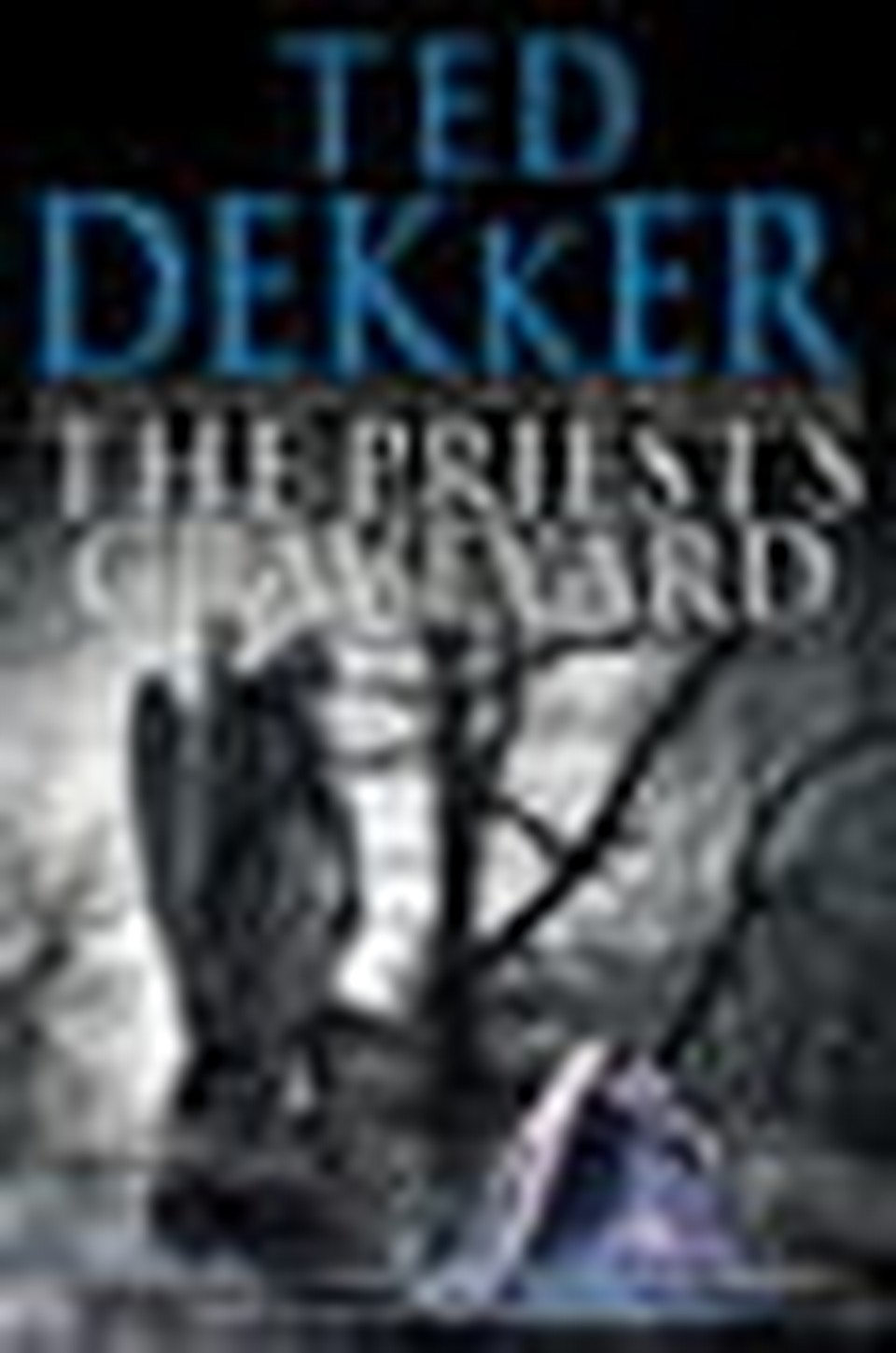Dekker Explores in The Priest’s Graveyard

Author: Ted Dekker
Title: The Priest’s Graveyard
Label: Center Street
The Priest’s Graveyard, the latest from eclectic spook-master Ted Dekker, is the best kind of chilling. The demons explored are figurative, making the terrors the worst kind. They’re not the things-that-go-bump-in-the-night variety, but rather those inflicted by human beings at their worst moments.
As a result, Graveyard becomes a story about attempting to outrun those demons, while simultaneously exploring the evil done by the suffering during their process of cleansing. A psychological thriller exploring themes of justice, ethics, forgiveness, and the consequences of violence inside a twist-laden maze, it’s Dekker at his finest.
Dekker takes great pains to build two authentic, complex characters whose lives intersect to form the central conflict of the novel. The protagonist, Danny Hanson, is a well-meaning, but confused California priest whose desire to see God’s justice done leads to the occasional vigilante murder. Hanson’s on the consequentialist side of the ethics fence (simply put, the end justifies the means). Ever since a 15-year old Danny witnessed brutalities committed against his mother and sisters in his native Bosnia, he has felt the calling to extinguish certain kinds of wrongdoers, mostly those who violate the helpless. Hanson is philosophical, meticulous, and committed to his cause. In his reasoning, his work is an extension of God’s command to protect the widows, orphans, and the like. This doesn’t make his forays into murder any less brutal. The passages which depict Hanson’s hits are gruesome and effective, chilling in their efficiency.
For 150 pages or so, Hanson’s story runs parallel to that of the other main character, Renee Gilmore, a heroin addict who is under the thumb of her dealer. Gilmore first stumbles into the path of Lamont Myers, a rich lawyer-type with a palatial, Malibu ocean-front home. His care for her is excessively OCD, but serves the purpose of cleansing Gilmore of her drug habit so she is ready for the world again. Dekker nimbly bounces back and forth from Hanson’s vigilante escapades to Gilmore’s progress under the care of Myers until his sudden disappearance ultimately brings the two stories together. Once they do, things really start cooking.
Dekker deftly taps into the wounded psyche of Gilmore, someone so damaged for so long she’s a shadow of a person, only looking for somebody to care for her. Under Hanson’s influence, she becomes something more sinister. The way Dekker progresses Gilmore’s character through an entirely believable, and dramatically dynamic arc, is masterful, as it is with Hanson, whose arc is less dramatic, but still gripping. The heart of this story is in the pas de deux performed by these two shattered souls clinging to each other in order to cling to hope. Despite their warped views of the world, and some of the heinous deeds they perform, we are still able to sympathize with both Hanson and Gilmore, and it’s a credit to the groundwork Dekker lays in their psychology.
All this is engrossing stuff, but how it ends up on the shelves of Christian bookstores, while dozens of other novels with similar content is excluded, is anyone’s guess. This isn’t a novel which explores religious themes in a great degree of depth. The questions asked, primarily if violence in the name of justice is ever acceptable, seem fairly tame. While watching injustice flourish is frustrating, and others have even contemplated interventionist methods, most would agree that using a silencer and some garbage bags to accomplish it, as Hanson and Gilmore do, is rather extreme. Philip Caputo’s Acts of Faith comes to mind as a recent novel which explored pointed contemporary issues of faith in a much more thought-provoking way. That aside, Dekker more than proves his reputation in tact with The Priest’s Graveyard, a heartbreaking, shocking, and fascinating psychological study.
Originally published April 18, 2011.





